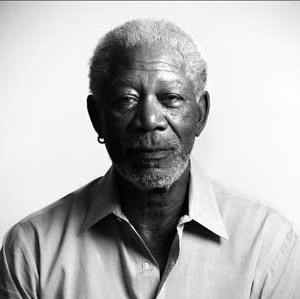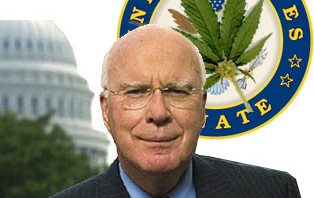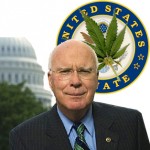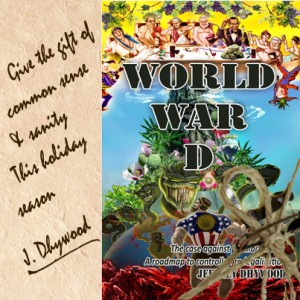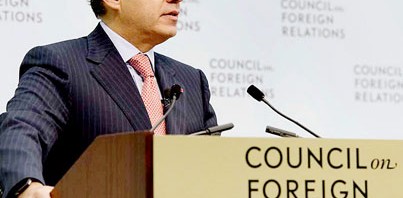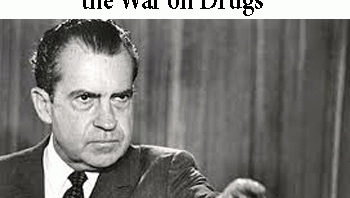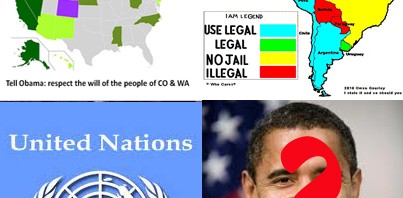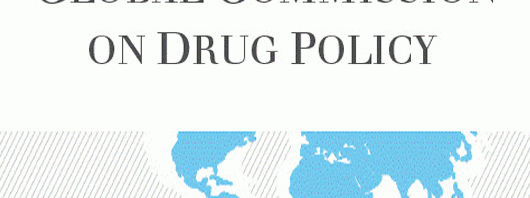I just completed the following interview for “A Book a Day Review” http://abookadayreviews.blogspot.com where it should be published shortly. The blog also has a nice review of “World War-D”
1) You put an awful lot of hard work into putting this book together, and some of the chapters are very detailed and technical. What happened that caused you to feel so strongly that the laws must change? It’s an awful lot of work to do unless there’s a strong sense of commitment. Was there something that happened in your life to spur you into taking on this challenge?
I got quite heavily involved into drugs back in the early 1970s and lost many people around me, including A., the woman I most loved in my live, as well as her sister D. a little over a year later. Both committed suicide as a consequence of their heroin addiction.
D. came to visit me the day before she jumped from a third-floor window. The door to my apartment in Paris was open and I had put a note on the door, asking her to just push the door as the bell didn’t work. I do not know what happened, whether she didn’t see the note, didn’t knock on the door, tried to ring the non-working bell; in any case she came to the door but didn’t come in, and she was in pain, she was desperate, looking for help, looking for comfort. In many ways this seemingly closed door that was really open was an image of our relationship and it has been haunting me ever since. I had given up drugs by then and I didn’t want to witness any more deaths, least of all D.’s.
Years later, I met their younger sister V. in the streets of Paris in a chance encounter, and we talked a long time about A. and her sister D.; she told me that A. had been pregnant but didn’t want me to know about it. She told me that D. was waiting for me to save her from herself; that she thought I was life, that I was the sun for her. Still, From London to Formenterra, from Paris to Morocco, I failed her even though I knew all along that I could save her, or could I? I was too timid and feared to impose on her, while she was waiting for me to grab her back to life, back to light, or was she? On the day of her funerals, I was walking painfully towards the cemetery, my steps and my mood getting heavier and heavier as I got closer, until I couldn’t stand it anymore and told myself “What for? She is dead now! Too many lives have been lost already.” I turned back almost running, with a feeling of elation and relief, with a weight taken off my chest; I had chosen life, I had turned my back to death. Or was I running away? Or both?
I moved to Latin America in 2000, and witnessed the region being sucked into a frightful and deadly spiral of violence and chaos because of drugs, or more precisely, because of drug-trafficking. As the carnage kept spreading, I felt the urge to do something about it, as the war on drugs is a really dreadful nonsense, an absurdity. Yes, drugs are powerful, and yes, they can be extremely destructive; I have paid a very high price in my personal life to learn this. This is precisely why prohibition is so dangerous. It is absolutely foolish and even irresponsible to relinquish the control of such powerful and potentially destructive substances to organized crime. The underlying paradigm of prohibitionism is fatally flawed.
I started writing in 2010 with a sense of urgency and commitment, plunging into my subject with dedication and even compulsion.
Reading through all the literature on the subject, I soon realized that most people look at just one facet of the topic, one piece of the puzzle. It was somewhat like the blind men trying to describe an elephant by describing the part of the elephant they are touching, the leg, the tusk, the trunk, the tail. Few and far between were courageous voices, such as Judge Jim Gray or Michelle Alexander, but even them, while looking at a bigger picture than most, were still looking at the issue from a decidedly US perspective. I wanted to go beyond. I wanted to give the full picture, I wanted to assemble all the pieces of the puzzle, and I wanted to do it from a global perspective. I set very ambitious goals for myself, and I wanted to write for the general public, not just preach to the choir. I had to make sense of this conundrum not only for myself, but for those who had never given much thought to the issue and never analyzed it with a critical mind.
Putting to good use my logician and mathematician background, I approached my topic as a complex mathematical problem that, like most real-life problems, does not have a unique solution, but rather an infinite continuum of possible outcomes under varying conditions, the problem being to define the optimized outcome and then find the proper conditions for such optimized outcome in a dynamic process.
I dug through tens of thousands of pages of studies, statistics and reports, from the UN, the WHO, the US government, the European Union, academics, researchers, activists. I was keen on choosing sources as respectable and uncontroversial as possible. I soon found out that the information, the data is all there, but lots of the conclusions are upside-down because of the flaws of the underlying dominant model, starting with the well-meaning but totally unrealistic goal of a drug-free world, the stated optimized outcome of the dominant prohibitionist model. In real life, prohibition is not practically enforceable in a free-market economy. The necessary conditions to even near such a lofty outcome can only be found in such extremes as the now defunct Soviet Union, Maoist China or Saudi Arabia, and even these most extreme words do not fully achieve this goal. Even after decades of mass incarceration of drug deviants of a scale that surpasses the Soviet and Maoist extremes, the US has miserably failed to curve the spread of substance use and abuse, just merely kicking the can around, from heroin in the 70s to cocaine in the 80s, to crack in the 90s, to amphetamines and now psychopharmaceuticals.
I started by deconstructing prohibitionism and the war on drugs and realized that in prohibition, or the War on Drugs, we are referring to “illegal drugs”, which is in fact two very distinct problems bundled together with catastrophic consequences: “illegal” and “drugs”. Once we untangle and separate these two problems, we can come up with reasonable and sensible alternatives.
I dug into the philosophical, ideological and historical origin of prohibitionism, and how it relates to the other 19th centuries totalitarian ideologies of coerced societal transformation: Communism and Fascism. I hypothesized that technological improvements such as industrial distillation of alcohol, opium smoking and the discovery of morphine or cocaine, create an evolutionary adaptative gap leading to the disease of excess called addiction. Prohibition was the wrong answer to a very real problem. It was also an alibi for more nefarious ends, mostly racial and cultural discrimination. From then on, the history of prohibition is a downward spiral of ever diminishing returns and ever increasing mayhem and chaos. An analysis of the human, societal, economic and geo-political cost of the war on drugs clearly demonstrates that prohibitionism, by effectively giving control to criminal elements, is the worst possible form of control. Prohibition heightens the harm potential of illegal drugs by an order of magnitude and the bulk of the harm they cause derives from their illegal status.
It should be noted that there are no clear relationship between the legal status of a substance and its intrinsic harm potential, the personal and societal harm it may inflict independently of its legal status. Bundling within the same legal framework relatively harmless substances such as marijuana and ecstasy with crack cocaine and heroin has had dreadful consequences and ended up facilitating the transition from the so-called soft drugs to hard drugs.
Looking at the drug part of the problem, I look at all psychoactive substances, irrespective of their legal status, starting with a brief introduction to the workings of the brain and how it is affected by psychoactive substances. This part of my research really fascinated me as I came to realize the amazing power of the human brain. I am currently working on a follow-up book project called “the brain explained” that will expand on that section of “World War-D”, trying to make it accessible to the general public. The brain circuitry, the neurons and their connections, can be viewed as a physiological representation of our inner models of reality. Such models are usually self-reinforcing, as we typically filter in the information that reinforce our inner models and/or interpret it through the filter of our inner models. However, events in our life, powerful sensations or experiences (including psychoactive experiences), may alter our neural network and affect our inner models of reality, with unpredictable consequences, and may be life-changing, for the better or for the worse. In addition, we have the power to direct our own transformation through conscious learning (or re-learning) and awareness. Addiction is the result of such neural alterations, and recovery is a conscious re-learning or more precisely, un-learning process. Various techniques have been developed throughout the ages, such as meditation, yoga or biofeedback, to facilitate the self-transformation process.
Going back to the psychoactive substances, we must first realize and acknowledge that they have been used since the dawn of humanity, and from tea and coffee to tobacco, alcohol and psychopharmaceuticals, or even marijuana and cocaine, most people use them on a regular basis if not daily, therefore, the concept of a drug-free world is just a pipe-dream. Each culture has its own dominant psychoactive substances that typically serve as social lubricants and facilitators and may have ritualistic or religious consonances, alcohol being the dominant psychoactive substance of Western civilization. As a result of globalization, psychoactives substances have gradually expanded outside of their traditional territories. While alcohol and tobacco have conquered the planet, the traditional psychoactives from Asia or Latin America and their extracts and derivates, have been moving the opposite way, conquering the Western world and are now also spreading throughout the planet. The latest psychoactive wave to sweep the planet is led by psychopharmaceuticals, the products of technological innovations in neuroscience.
We should also acknowledge that most users of psychoactive substances use them in moderation, often with occasional episodes of abuse in special circumstances such as celebrations. Problem users, those susceptible to cause harm to themselves or to others, are a relatively small percentage of users. Trying to prevent all use of any particular substance is extremely counterproductive and it is far more efficient to focus on problem use, how to prevent it, how to minimize its associated harms.
Once we properly understand the “illegal” and the “drugs” parts of the problem, and once we split and untangle them, we can reconstruct and address each one separately. Illegality can be solved by controlled legalization, which, if properly done, will dismantle the illegal drug marketplace. Drug use per se is not an issue in and of itself; substance abuse is a medical and social issue that should never have been turned into a criminal issue.
The next step is to set reasonable and realistic goals for optimized outcome and see what type of conditions will allow reaching these goals. I propose a paradigm shift away from the unrealistic drug-free world fallacies towards more realistic goals of harm minimization. To that effect, I look at the various legal models of psychoactive substances, the alcohol model, the tobacco model, the prescription drug model, and the prohibitionist model, which, as we have already seen, is by far the worst possible form of control. Each of the existing regulatory models has its own flaws and limitations, but we can learn from these models to design a regulatory framework that will produce the desired harm minimization outcome. The model I propose favors nudging over coercion. Acknowledging that people will use psychoactive substances whether we like it or not, I propose to nudge them towards the least harmful substances, the least harmful patterns of use, and the least harmful administration modes. I also propose to set in place alert mechanisms so that users moving towards hazardous patterns of use can receive proper help and support.
In short, my goal with “World War D” is to try answering the simple but fundamental question: “Can organized societies do a better job than organized crime at managing and controlling psychoactive substances?” which is placing the bar very low when you think about it. To that effect, I lay out a concrete, pragmatic and realistic roadmap to global controlled legalization under a multi-tier regime: “legalize, control, tax, prevent, treat and educate,” with practical and efficient mechanisms to manage and minimize societal costs.
Would A.’s and D.’s lives have been spared under a regulated marketplace model? I have no idea. It is pointless to try to rewrite the past anyway. What I know though, is that countless lives would be saved in the future if we had the courage to confront and properly manage substance abuse instead of trying to deny it into prohibition.
2) Has there been any blowback from people who DO believe in the Drug War, and what percentage of them actually read the book all the way through?
I haven’t received any negative feedback from prohibitionists so far. I offered a copy to former UNODC director Antonio Maria Costa, who hasn’t taken me on my offer. I had some dialog with Mr Maria Costa while he was still at the helm of the United Nations Office on Drugs and Crime, but our dialog was rapidly cut short. You can see some of his comments on my website.
People rather unfamiliar with the topic have found the book eye-opening. Several people have complained that the book is too detailed and too technical, with too many references. Some admitted that they struggled with the chapter on the brain, but were glad to stick to it as it gave them a great understanding of the workings of the brain.
I really do not know how many of my readers read the entire book. This is not a novel that you read from cover to cover after all, but several people have commented that they use “World War-D” as a reference. It was even selected as a textbook for a criminology course in Southern Utah University.
I also have to admit that to the best of my knowledge, my readers have mostly come so far from the activist community or are in favor of legalization. Reaching out to the general public has been harder than I thought, but I am making headways.
3) Are there any new updates in the situation to report since the book’s original publication?
There have been tremendous changes on the drug policy reform front, with Latin American countries leading the call for reform, and of course the states of Colorado and Washington legalizing marijuana with double digit margins. I have prepared a review of the major events of 2012 that is available at http://www.slideshare.net/slideshow/embed_code/15908266.


